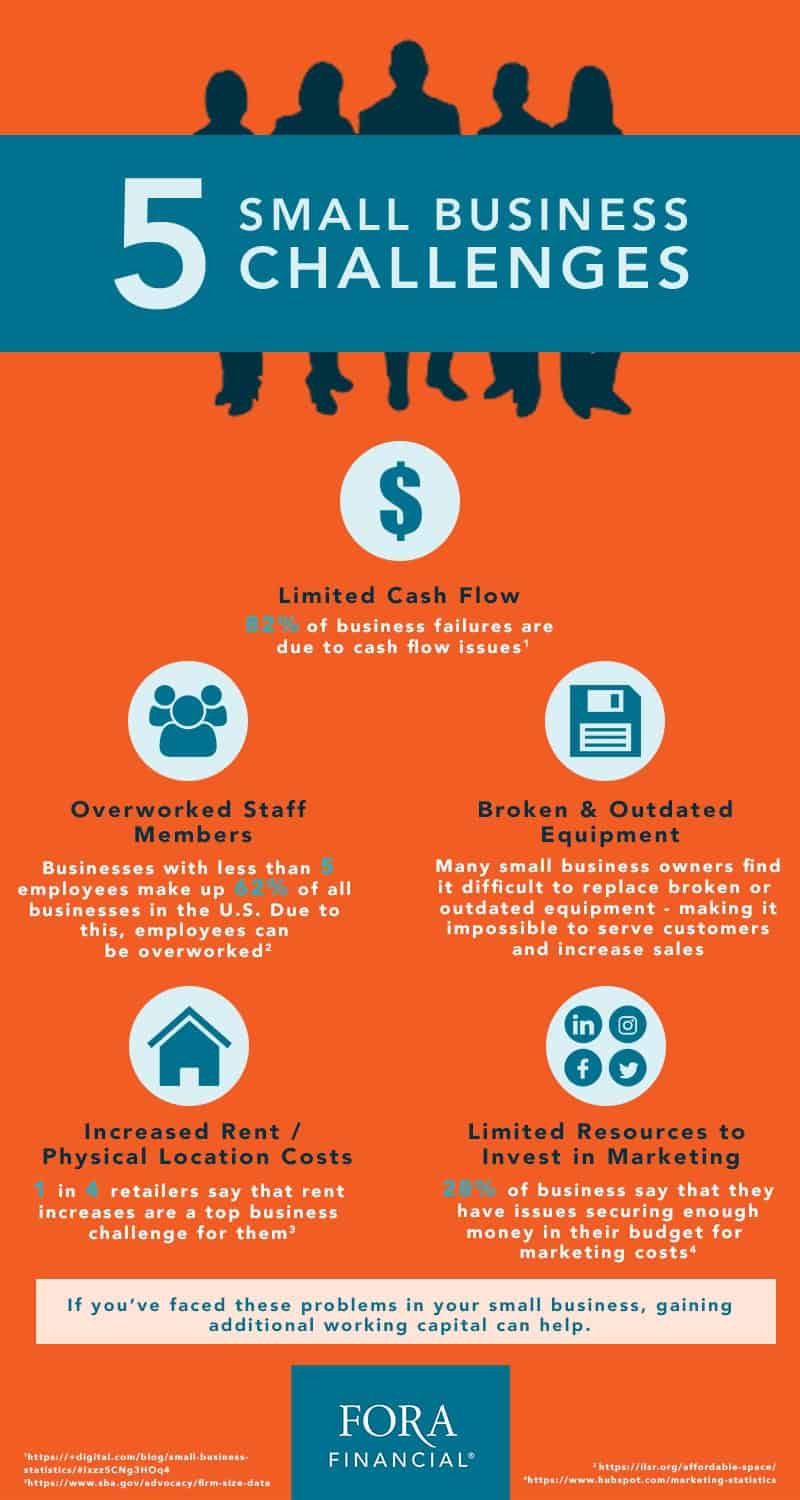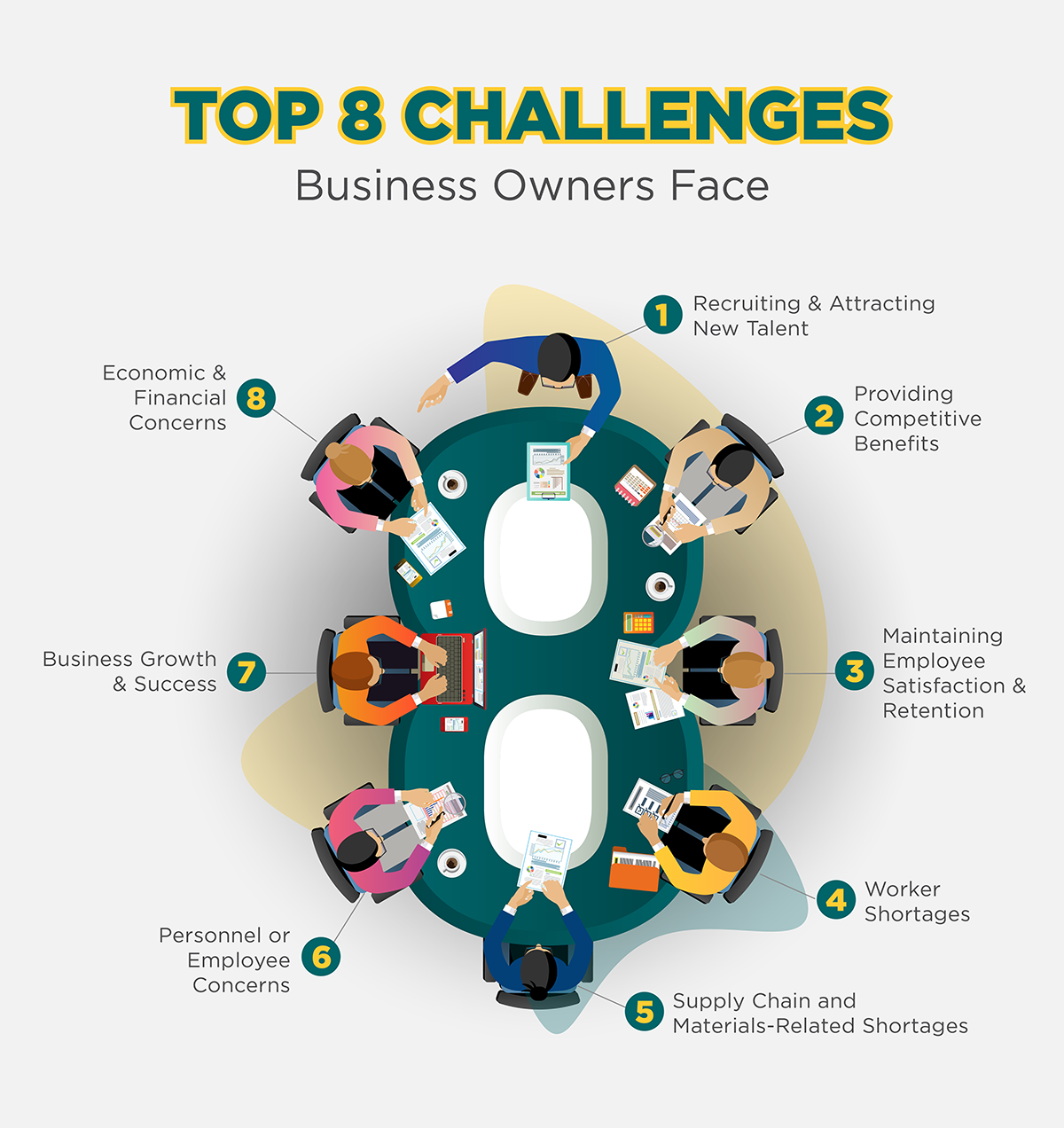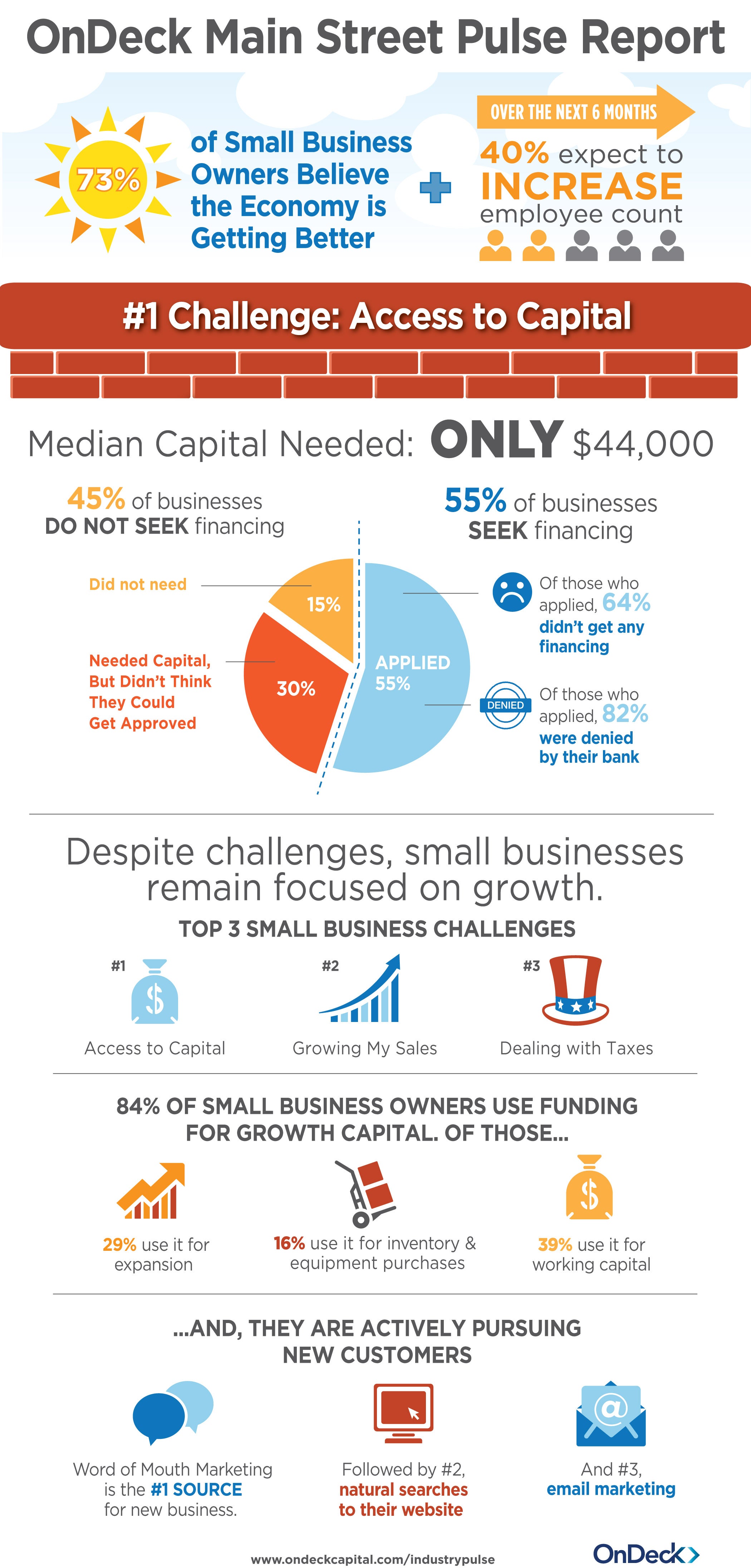Challenges For Small Business Owners

Small business owners, the backbone of local economies, are facing a complex web of challenges that threaten their survival and growth. From navigating persistent inflation to grappling with labor shortages and adapting to evolving consumer behaviors, these entrepreneurs are under immense pressure.
The current economic landscape presents a particularly difficult environment for small businesses. Understanding these hurdles and exploring potential solutions is crucial for supporting the small business ecosystem and ensuring its continued contribution to the economy.
Economic Headwinds and Financial Strain
One of the most pressing concerns is inflation. Rising prices for goods and services are squeezing profit margins and forcing business owners to make difficult decisions about pricing and resource allocation.
According to a recent report by the National Federation of Independent Business (NFIB), a significant percentage of small business owners cite inflation as their top concern. Increased costs of supplies, fuel, and inventory are directly impacting their ability to compete with larger corporations.
Beyond inflation, access to capital remains a constant struggle. Many small businesses find it challenging to secure loans and financing, particularly those with limited credit history or collateral.
"Access to capital is crucial for small businesses to invest in their growth, but the current lending environment is making it difficult for many to get the funding they need,"stated John Smith, a small business consultant.
Labor Shortages and Workforce Challenges
The ongoing labor shortage is another major hurdle. Finding and retaining qualified employees is proving increasingly difficult, forcing businesses to operate with reduced staff or offer higher wages to attract talent.
This shortage spans across various industries, from restaurants and retail to manufacturing and construction. The competition for workers is driving up labor costs and putting additional strain on already tight budgets.
Furthermore, businesses are also dealing with rising healthcare costs and the need to provide competitive benefits packages to attract and retain employees. This adds another layer of complexity to managing their finances.
Adapting to Changing Consumer Behaviors
The rise of e-commerce and shifting consumer preferences are forcing small businesses to adapt quickly. Consumers are increasingly turning to online platforms for shopping and services, creating a need for small businesses to establish a strong online presence.
This requires investments in website development, digital marketing, and e-commerce platforms. Small businesses often lack the resources and expertise to compete effectively in the online marketplace.
Many small business owners are also struggling to keep up with the latest technology and innovations. Implementing new technologies can be expensive and require significant training and support.
Regulatory Burdens and Compliance Costs
Navigating the complex web of regulations and compliance requirements can be overwhelming for small business owners. From local zoning laws to federal labor regulations, there are numerous rules and guidelines that must be followed.
Complying with these regulations can be time-consuming and costly, diverting resources away from core business operations. The burden of compliance can be particularly challenging for smaller businesses with limited administrative support.
Furthermore, changes in regulations can create uncertainty and require businesses to adapt quickly. Staying informed about these changes and ensuring compliance is an ongoing challenge.
Looking Ahead: Strategies for Survival and Success
Despite these challenges, small business owners are resilient and resourceful. Many are finding innovative ways to adapt and thrive in the current environment. Embracing technology, focusing on customer service, and seeking out niche markets are some strategies that are proving successful.
Government support and initiatives are also crucial for helping small businesses overcome these challenges. Providing access to capital, reducing regulatory burdens, and offering training and resources can create a more favorable environment for small business growth.
Ultimately, the success of small businesses depends on their ability to adapt to changing conditions, embrace innovation, and build strong relationships with their customers and communities. By understanding the challenges they face and providing them with the support they need, we can ensure that these vital engines of economic growth continue to thrive.


















